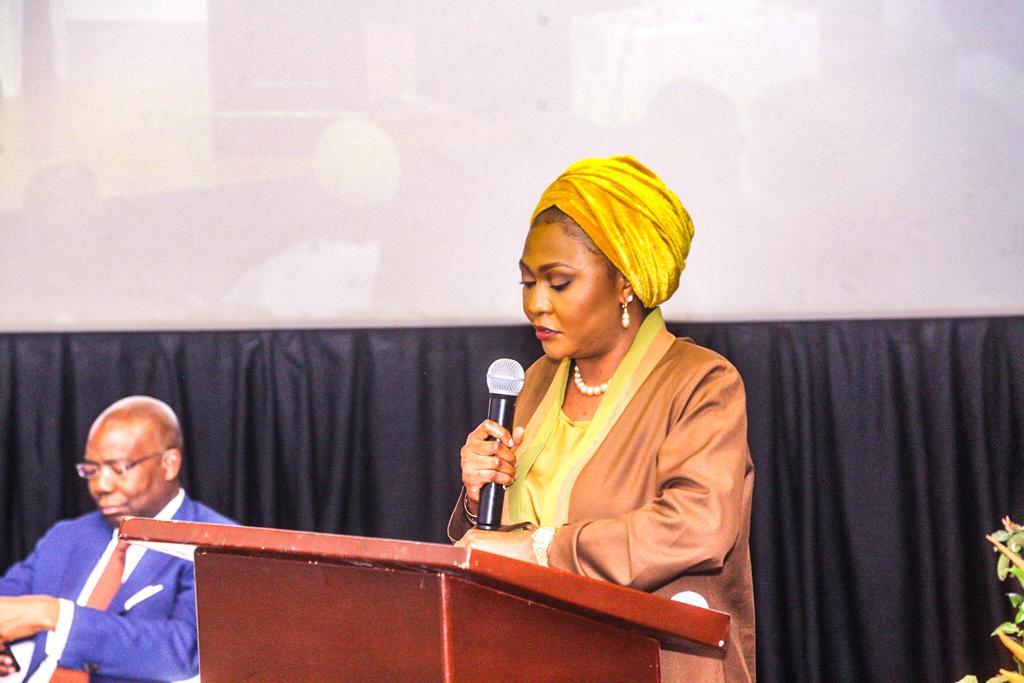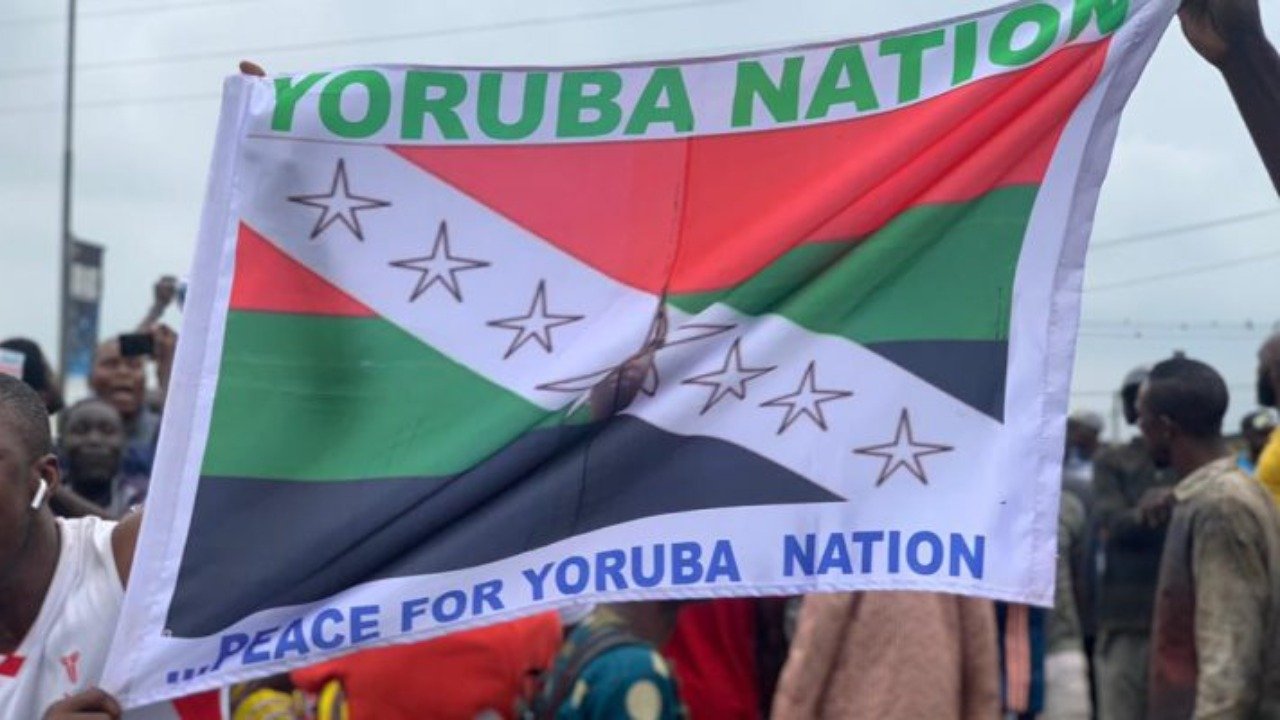By Oyin Adeyemi
The theme could not be more apt for the current times as throughout the world, following the war in Ukraine, the news is grim.
Here are some global headlines:
- Forbes: Global Economy Headed into Recession
- Reuters: Energy, inflation crises risk pushing big economies into recession, OECD says
- Fortune: Economic growth could grind to a halt and spark global recession next year, OECD says
- Risk of Global Recession in 2023 Rises Amid Simultaneous Rate Hikes – The World Bank.
In Nigeria,
- The Vanguard Newspaper: Nigeria risks 3rd recession in 7yrs, NACCIMA warns FG
- Sahara Reporters: Nigeria’s Domestic, Foreign Debts Rise to N41trillion Under Buhari, Equal N200,000 Per Nigerian
- The Guardian: Nigeria broke, can’t fund 2023 capital projects, Ngige cries out
- Nairametrics: Nigeria’s inflation rate surges to a 17-year high of 19.64% in July 2022
From these headlines, one thing is certain, the government has no choice but to “lead with less.” – Now, How?
As a business leader, political theorist and public commentator, I am always curious about how we can keep orienting and expanding our understanding of what quality/good leadership is all about. Every society’s strength is largely determined by the calibre of its leadership. Throughout history, successful societies have been those whose leaders have been able to rise to the occasion and calm storms during crises while also advancing the course of prosperity during times of peace. Without leadership, a nation or organisation is like troops without a General, or a ship without a Captain. This is to emphasise the significance of leadership.
Simply put, we know that good leadership recognises that it cannot know everything that needs to be known and, as a result, will seek to expand knowledge as needed, as well as seek diverse perspectives to inform decision-making. Good leadership always demonstrates effective communication and listening skills; prioritises the interests of society over personal agenda; makes difficult decisions and develops long-term plans for the benefit of society as a whole.

Asue Ighodalo, Lami Adeyemi, Danladi Verheijen, Sultan of Sokoto, His Eminence Muhammadu Sa’ad Abubakar, Aigboje Aig-Imoukhuede, Dr Derin Awosika & Dr Omotola Johnson
Poor leadership, on the other hand, focuses on individual agenda, is single-minded in decision-making, does not consider different ideas or perspectives, cannot take criticism, is uninformed, and does not plan beyond its tenure.
Irrespective of poor leadership, History teaches us that some industries have thrived in a recession, especially those in which the consumer demand is relatively stable. In this category, we have food, consumer staples, healthcare and basic transportation.
Similarly, during the COVID-19 pandemic, we saw tech companies that specialise in online and remote services experience a boom.
So, the good news is that it is not all doom and gloom because with recessions also come the opportunity to think differently and innovatively.
Infrastructure as an Engine for Economic Growth
Investment in transportation, water, buildings, electricity, education and security creates jobs and serves as the backbone of a healthy economy.
Although the World Bank warned of the risk of a global recession in 2023, as I earlier highlighted, it is an interesting thing to note that some World Bank reports have shown the links between investments in good security, education, electricity, internet, and road infrastructure and economic development using the Horn of Africa and Lake Chad regions as case studies.

Oniru of Iruland, HRM Oba Gbolahan Lawal, Sultan of Sokoto, His Eminence Muhammadu Sa’ad Abubakar & Mr Tunde Folawiyo
While the focus of that research was to show the transition from agriculture to manufacturing and services, I am not suggesting that Nigeria does not need to invest in agriculture. However, I want to paint a picture of how a region dealing with drought and terrorism – very similar challenges to those in northern Nigeria – could become more prosperous due to infrastructural development.
The World Bank report states that:
- access to paved roads led workers to move out of low-productivity agricultural endeavours primarily into manufacturing and services in Kenya and Ethiopia. This resulted in a 6% reduction in the workforce employed in agriculture in the Horn of Africa and a 3% reduction in Lake Chad.
- bundling road investments with access to electricity leads to a much bigger impact. The share of employment in agriculture fell by as much as 20% in the Horn of Africa and 23% in Lake Chad. In this case, workers shift mostly into manufacturing in the Horn of Africa and into the services sector in Lake Chad.
What if we took some of these learnings and adapted them locally?
Tackling Nigeria’s Infrastructure Conundrum
I would like to recommend few ways (some of which are self-explanatory) ‘to lead with less while building for development – to tackle Nigeria’s infrastructure conundrum,’
- Nigeria must see infrastructure development as a solution and not a cost.
- Security- a viable system to ensure safety of the people
- Education- invest in educating the people to understand
- Nigeria must learn to preserve and maintain
- Nigeria must do away with a recency bias
- Nigeria must learn to build a strong and lasting system (Infrastructure & credit system)
- Seeing infrastructural development as a solution and not a cost –
No doubt infrastructure development is expensive and the government has scarce resources, nonetheless, the multiplier effect is enormous. Irrespective, it is pertinent for good leadership that a government seeks to guarantee that security of its people and empower its citizens with knowledge through an adequate education system for the general growth and development of the nation. This also impacts diverse areas of the economy. For instance, where there is adequate security and education in the agricultural sector, the quality and quantity of agricultural produce shall increase. As such, with the impact of sufficient infrastructural developments such as good roads and rail networks, farmers will largely increase their access to bigger regional markets and lead to reduced losses from perishable goods. The increased supply will also lead to price reductions for goods. This is one way to tackle food inflation.
Infrastructure connects workers to their jobs. Good infrastructure means that employees can get to and from work quicker and safer. The less time people spend in traffic, the more productive they will be. In 2021, Expert Market UK released a list of The World’s Most Productive Countries in 2020 relying on information from the OECD and World Bank dat. This work outs which countries had the most effective financial return while spending the least amount of time in the office. The cities were ranked for infrastructure, stability, culture and environment, healthcare, and education.
Luxembourg, the smallest country on the list “with almost double the productivity score than second-placed Ireland, this tiny nation paved the way in 2020 in terms of productivity thanks to its 40-hour working week, booming financial sector, minimum of 5 weeks paid annual leave, and prohibited employment on Sundays,” said Expert Market. The other countries in the top ten were; Norway, Switzerland, Denmark, Netherlands, Germany, Austria, Iceland and Sweden. In 2022, Luxembourg, Ireland, Norway and Switzerland still made the top 10 – with Luxembourg retaining the number one position according to the World Population Review.
Interestingly, some cities from these countries were also ranked by the Economist Intelligence Unit’s (EIU) Global Liveability Index 2022 among the 10 best cities to live in around the world. Vienna, Austria (1st); Copenhagen, Denmark (2nd); Zürich, Switzerland (3rd); Geneva, Switzerland (6th); Frankfurt, Germany (7th); and Amsterdam, Netherlands (9th).
- Preserving and maintaining –
Over the last two weeks, the funeral ceremony of the late Queen Elizabeth II (the Second) dominated the news. Whether or not you are interested in the British monarchy, you were inundated with the news and for the United Kingdom, it was yet another opportunity to put on display one of the country’s most marketable assets, her history and culture. This was only possible because the United Kingdom has preserved its history through documentation and maintenance of historical sites and monuments.
St James’s Palace in London, where King Charles III (the Third) was officially proclaimed King, and which a commentator described as the less popular of the palaces could very well become a tourist attraction. A story published in a UK Metro report published on 18 September states: “According to the 2019-20 annual report, a record 3,285,000 people visited the official residences, generating approximately £49,859,000.”
- Doing away with a recency bias –
Do you know a restaurant that was once the toast of the neighbourhood until another was opened on the opposite side of the street?
We love new things but in times when we need to “lead with less,” we must do away with the recency bias. Rather than demolishing a building and rebuilding it from scratch, how about upgrading it? According to a 2017, Business Insider article, one of the world’s richest men, Warren Buffet, lives in the same house he bought in 1958. Doing away with a recency bias will help us preserve and maintain
- Building to last –
To be able to preserve and maintain, we must also build to last. It requires Nigeria, from the outset, to invest in infrastructure that will outlive generations. There are too many sore stories of collapsed buildings, old and new. Clearing the rubble and compensating the loved ones of those who die in collapsed buildings is costly. Refurbishing roads after the rainy season also translates to economic costs. In the long run, it will be cheaper to invest in quality infrastructure.
Also, we must build a strong and lasting credit system, which gives people the hope for growth and in turn development, as more people will be empowered by the credit system to make good and lasting investments.
And in closing, I say: “Leading with Less While Building for Development” is inevitable in today’s increasingly challenging world that is affected by poverty, climate change, war and numerous factors beyond our control. It is a leadership imperative that is binding on all of us.
Oyin Adeyemi -Chairperson/ Group Managing Director, Still Earth Holdings delivered this paper at the Dr Lateef Adegbite Memorial Series on Leadership in Lagos

 News6 years ago
News6 years ago
 Featured6 years ago
Featured6 years ago
 Boss Picks6 years ago
Boss Picks6 years ago
 Headline6 years ago
Headline6 years ago
 Headline6 years ago
Headline6 years ago
 Headline5 years ago
Headline5 years ago
 Headline6 years ago
Headline6 years ago
 Headline6 years ago
Headline6 years ago















